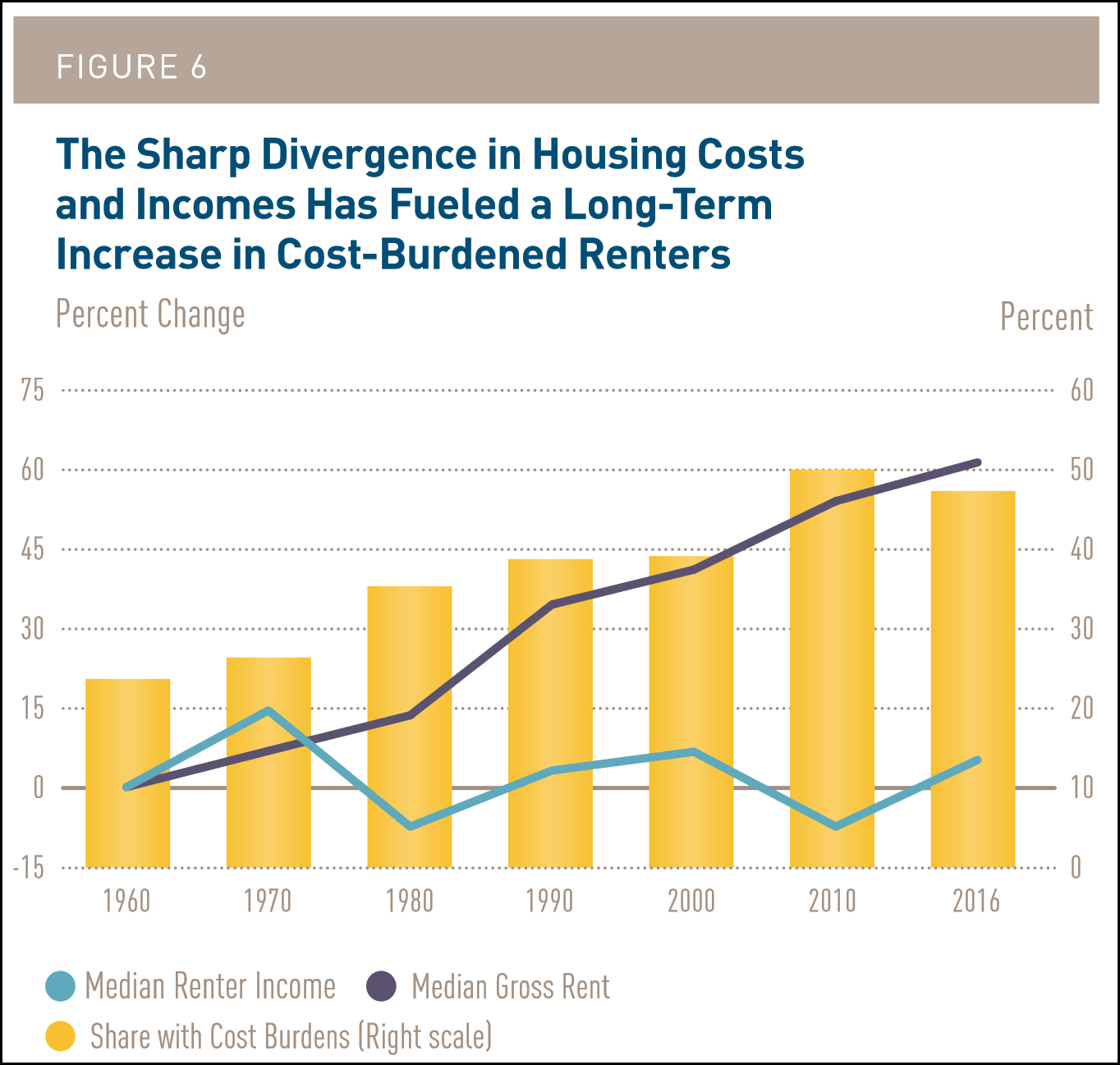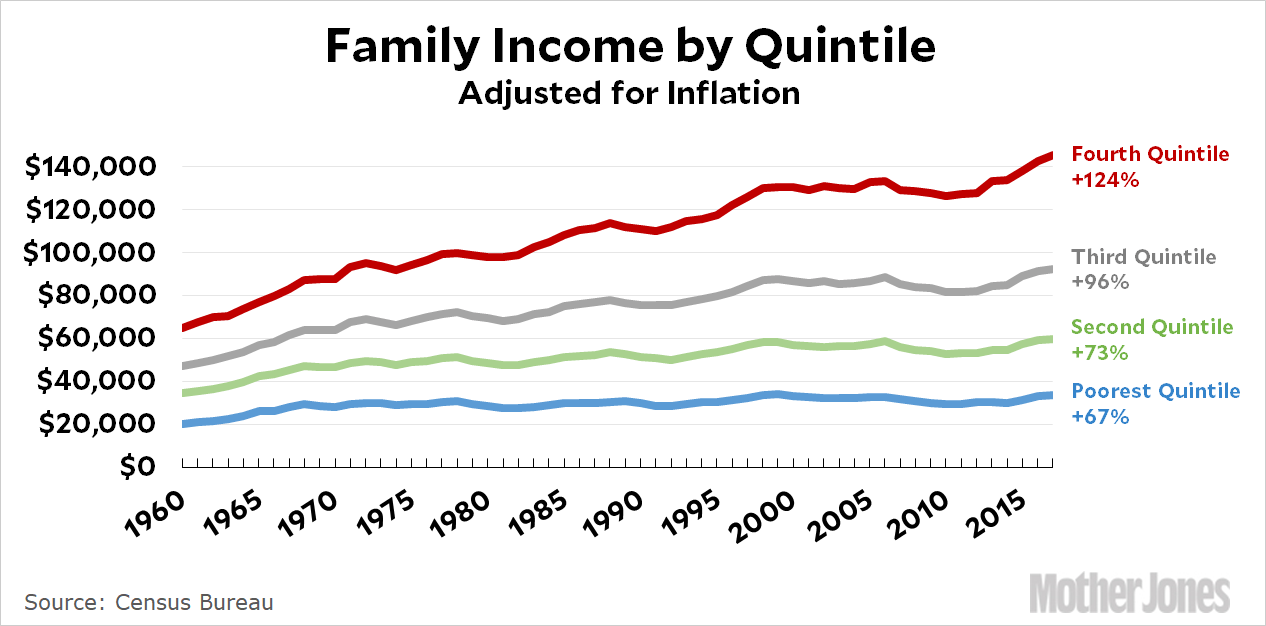In an op-ed over at BuzzFeed, the national director of the Opportunity Starts at Home campaign says that most people think housing affordability is a big problem:
Those people aren’t imagining things: The affordability crisis has indeed reached historic heights, and the data is shocking. Since 1960, renters’ incomes have increased by only 5% while rents have risen 61%.
I agree that housing affordability is a problem, but renters’ incomes have surely gone up more than 5 percent since 1960. What’s going on here? Apparently this figure comes from the annual “State of the Nation’s Housing” report from the Joint Center for Housing Studies at Harvard:

The report doesn’t say where this income data comes from, but it sure doesn’t seem likely. Here are the incomes of the poorest to the richest families since 1960:

These are the raw figures from the Census Bureau. If I use a different inflation measure, incomes have gone up even more. If I break out income by age or education or race, nothing much changes. For every demographic group you can think of, earnings since 1960 have gone up at least 50 percent, and usually much more.
Given all this, what are the odds that renters’ incomes have increased by only 5 percent? Pretty slim, I’d say. In fact, if the JCHS data on rent is accurate, it looks as though incomes have most likely gone up more than rents. Where did this stuff come from?
POSTSCRIPT: The odd thing about this is why the series starts with 1960 in the first place. That’s a long time ago and it includes the booming economy (and incomes) of the 60s. If you start, instead, at 1975, rents have definitely gone up more than incomes at the low end. It’s not 60 percent vs. 5 percent, but it might easily be 50 percent vs. 20 percent.

















